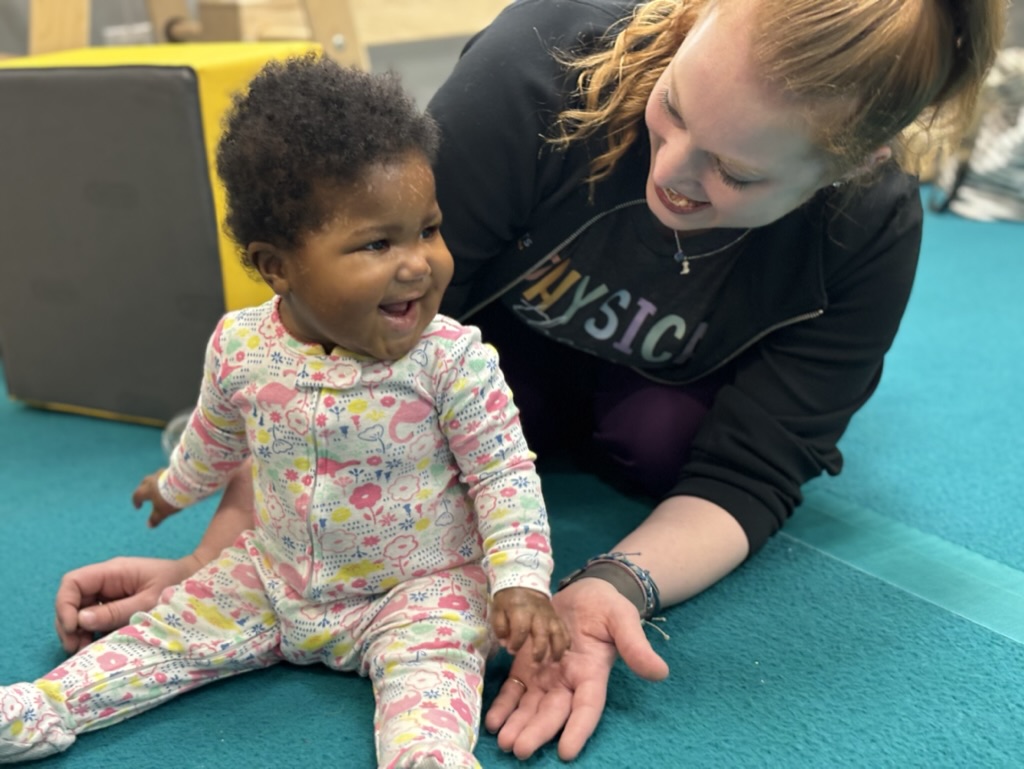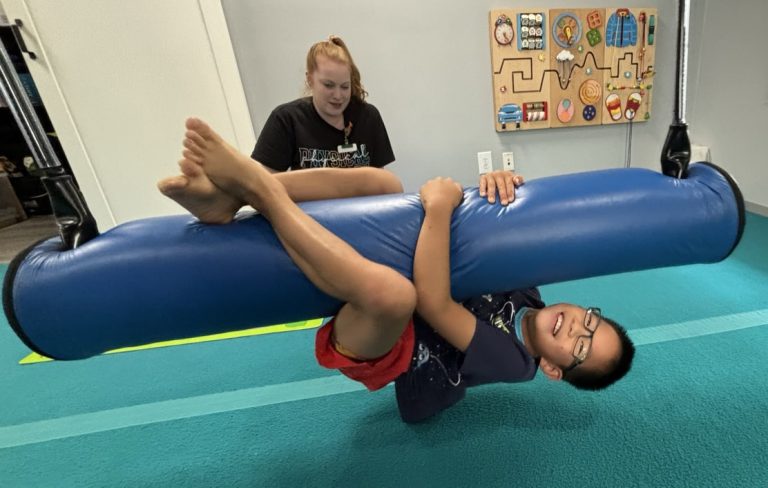Physical Therapy for Kids
Pediatric physical therapy addresses limitations related to gross motor skills, which are tasks that involve large muscle groups of the body such as sitting, walking, and jumping by working to improve strength, range of motion, balance, and coordination and ultimately help a child improve their ability to participate in physical activity and meet developmental milestones.
Physical Therapy Services for Children

Physical therapy is about helping your child build the strength and confidence to live life to the fullest. We focus on empowering them with the independence to safely navigate their surroundings, whether at home, on the playground, or in the classroom, so they can explore and play alongside family and friends. Beyond therapy sessions, our pediatric physical therapists also help families with the process of attaining appropriate orthotics, prosthetics, and durable medical equipment (DME) including wheelchairs, standers, gait trainers, and much more.
Does My Child Need Physical Therapy?
As a parent, you have a unique insight into your child’s development. If you’ve noticed certain challenges or have concerns about their physical milestones, trusting your intuition is an important first step. An evaluation with a pediatric physical therapist may be beneficial if your child shows difficulty in one or more of the following areas:
- Doesn’t like tummy time
- Poor head control while on their stomach or while sitting
- Holds head tilted to one side or only looks in one direction
- Concerns about posture and positioning
- Delays in motor development, such as:
- Not yet sitting by 6 months old
- Not crawling by 10-11 months old
- Not walking by 18 months old
- Walks on toes
- Clumsy/difficulty with balance and coordination
- Falls frequently and/or has trouble stopping falls and protecting their head and face
- Doesn’t skip, jump, or hop on one foot
- Poor endurance/difficulty keeping up and playing with friends
- Sports and non-sports related injuries
Have Questions? We are Here to Help
Child Physical Therapy: Who can Benefit ?
Curious if physical therapy might be right for your child? Our team is here to help your child get stronger, feel more confident, and enjoy moving and playing. If you’ve spotted any challenges with movement or noticed milestones taking longer, scheduling a physical therapy evaluation can really help. Take a look below for some of the most common conditions we support:
- Brachial plexus injuries
- Brain injuries
- Cerebral palsy
- Children with flat feet
- Club foot
- Coordination and balance challenges
- Dandy-Walker syndrome
- Developmental coordination disorder
- Developmental delay
- Down syndrome
- Fragile X syndrome
- Genetic disorders
- Gross motor delay
- Hydrocephalus
- Imbalances in muscle tone (often called low or high muscle tone)
- Infants born prematurely
- Muscular dystrophies
- Muscle weakness (generalized)
- Neuromuscular disorders
- Plagiocephaly
- Recovery from sports and non-sports related injuries
- Scoliosis
- Spina bifida/tethered cord
- Spinal cord injuries
- Torticollis (head tilt or preference to look to one side)
- Traumatic brain injury

Testimonials
Frequently Asked Pediatric Physical Therapy Questions
Physical therapy (PT) helps children improve strength, balance, coordination, and mobility. It can benefit children with:
- Developmental delays (e.g., late walking)
- Torticollis or flat head syndrome in infants
- Cerebral palsy or neuromuscular conditions
- Orthopedic injuries or recovery after surgery
- Poor posture, core strength, or balance
Yes, but in a fun, play-based way! Our physical therapists use obstacle courses, games, and child-friendly exercises to improve your child’s physical abilities through a play therapy approach.


